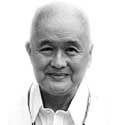
Musings
By Oscar P. Lagman, Jr.

In the Jessica Soho Presidential Interviews of Jan. 22, Jessica asked Vice-President Leni Robredo, Senator Panfilo Lacson, Senator Manny Pacquiao, and Manila Mayor Isko Moreno how they would solve the problems hounding PhilHealth if they are elected president. According to estimates PhilHealth’s actuarial life may only last until 2027.
Moreno was first to answer. He said the position is not for doctors or anyone that they want to appoint. “We have to put a financial guy or group of people who understand finances and how to grow the money of PhilHealth,” he elaborated. Lacson asked rhetorically, “First of all, what’s a lawyer and a former NBI director doing to lead PhilHealth? I think PhilHealth is a health insurance (company), right? It should be someone who knows how to handle finances. In that sense, the skills do not match the position,” the senator said.
Robredo stressed that someone who is well-versed on health economics and an actuarial scientist should lead the agency. “PhilHealth is in this kind of mess because of the failure of leadership to manage the office. Why are there less contributions? There’s not enough confidence for PhilHealth. There’s less confidence because they haven’t paid more hospitals.”
Pacquiao said there is too much corruption in PhilHealth, there is need for change of leadership. This is the very reason President Duterte appointed NBI Director Dante Gierran president of PhilHealth, to put an end to the corruption in the agency.
But Lacson is right in saying that it is wrong for a detective to head an insurance company. But neither should a health economist or an actuary head it, as Robredo suggests. They are specialists, not generalists. They are not suited for general management.
Moreno puts forward that a group of people who understand finances should head PhilHealth. More than that, the group should include people well-versed in the other functions of an insurance company, like underwriting or evaluation of potential healthcare cost of a prospective client, and processing of claims for compensation or reimbursement.
As I have written here before, mandating PhilHealth to administer the National Health Insurance Program was a colossal mistake. Even if you rid PhilHealth of corrupt officers and staff, it would still be incapable of formulating and promulgating policies for the sound administration of the program as it lacks the people with formal training and substantial experience in health insurance.
Health insurance is a contract that requires an insurer to pay some or all of a person’s healthcare costs in exchange for a premium. To operate profitably, a health insurance company has to have certain people with formal education and special training to be able to perform the basic functions of a health insurance company. These people are an actuary, a fund manager, claims adjusters, and an underwriter.
The health insurance actuary is responsible for assessing future financial risk in healthcare. Using a blend of mathematics, statistics, and financial theory, he estimates financial uncertainty and calculates the cost of health insurance premiums based on reported health data like the Department of Health morbidity rates. He makes financial predictions of expected costs and profits using patient health data, geographical location, occupational risk factors, and age.
The health insurance actuary is typically a master in actuarial science. Academic disciplines combining courses such as mathematics, statistics, probability, economics, finance, computer science, and business administration are ideal in preparing a person for an actuarial position in a health insurance company.
The fund or investment manager is responsible for making the funds — the enrollees’ aggregate fees or the total premiums paid by the people insured — grow by implementing investment strategies. The typical fund manager possesses a minimum of a bachelor’s degree in economics, finance, and business. He may have gone through advanced studies in financial management or hold a master’s degree in economics and have significant experience as a trader in a bank. He may even carry the title Chartered Financial Analyst.
PhilHealth’s advancing payment of millions of pesos to a number of healthcare facilities is a reflection of the lack of competence in fund management and knowledge of the concept of insurance. An insurance company generates additional funds by the judicious placement of the enrollees’ aggregate fees in the money market. What PhilHealth has done is divert a large portion of the investable funds to non-interest earning placements.
Advance payment also goes against the cardinal principle of insurance — to compensate the insured for his loss. The insured person is paid only after he had incurred an expense. That the estimated actuarial life of PhilHealth is only until 2027 means that there is no competent actuary and fund manager in the company.
The claims adjuster is responsible for processing and authorizing the payment of medical claims, negotiating bills on an as-needed basis, and monitoring medical bills to make sure there are no errors in billing or items which aren’t covered by insurance.
A medical claims adjuster generally holds a bachelor’s degree in some sort of medical field. Along with this, he has high level of healthcare experience. A registered nurse with at least one year experience in a tertiary hospital would be ideal.
Regarding skills, a medical claims adjuster needs to have excellent written and verbal communication skills as he often deals with stressed claimants. It is also important that he has strong analytical skills since a big part of a claim adjuster’s job is scrutinizing medical bills. He must have a knack for spotting cost items not covered by the insurance policy.
A health insurance company needs more than just one adjuster, depending on the number of enrollees or people insured. PhilHealth needs an army of adjusters. According to PhilHealth, it took on average 44 days to process a hospital claim in 2020 and 2021. That, I think, accounts for PhilHealth’s failure to pay the billions due hospitals. It is just swamped with claims. It does not have an army of competent claims adjusters to process the tsunami of claims.
An insurance underwriter evaluates insurance applications in order to decide whether to provide the insurance and, if so, the coverage amounts and premiums. Underwriters act as go-betweens for insurance agents who are eager to insure people to earn a commission and the insurance company which wants to minimize risk. As RA 11223 enrolled every Filipino citizen in PhilHealth in 2019, PhilHealth has no need for an underwriter.
As the actuary, fund manager, claims adjusters would be busy attending to the demands of their positions, PhilHealth needs someone else to oversee its overall operations. He must be a business leader with superior management skills.
Because of PhilHealth’s tremendous responsibility — 111 million Filipinos spread all over the archipelago are insured by it — someone who has been president or chief operating officer of a consumer goods company with regional sales offices and warehouses would be ideal to head PhilHealth. Someone like the chairman of Social Security System, Johnny Santos, who was chief executive officer of Nestlé Philippines, would be a suitable CEO for PhilHealth.
A retired chief-of-staff of the Armed Forces of the Philippines who rose from the Army service branch and who has an MBA and some business experience would also make a good CEO of PhilHealth. So, would a retired chief-of-staff of the Army who has an MBA and business experience.
Oscar P. Lagman, Jr. was country manager for the Philippine operations of a multinational health insurance company in the 1980s. As a consultant in 1988, he set up the health insurance line of the local partner of a London-based non-life insurance company. In 1999, he set up the health insurance line of the Philippine operations of yet another London-based insurance company. He was program director of the Executive Development Program the De La Salle Graduate School of Business conducted in 2007 for 50 officers of PhilHealth.